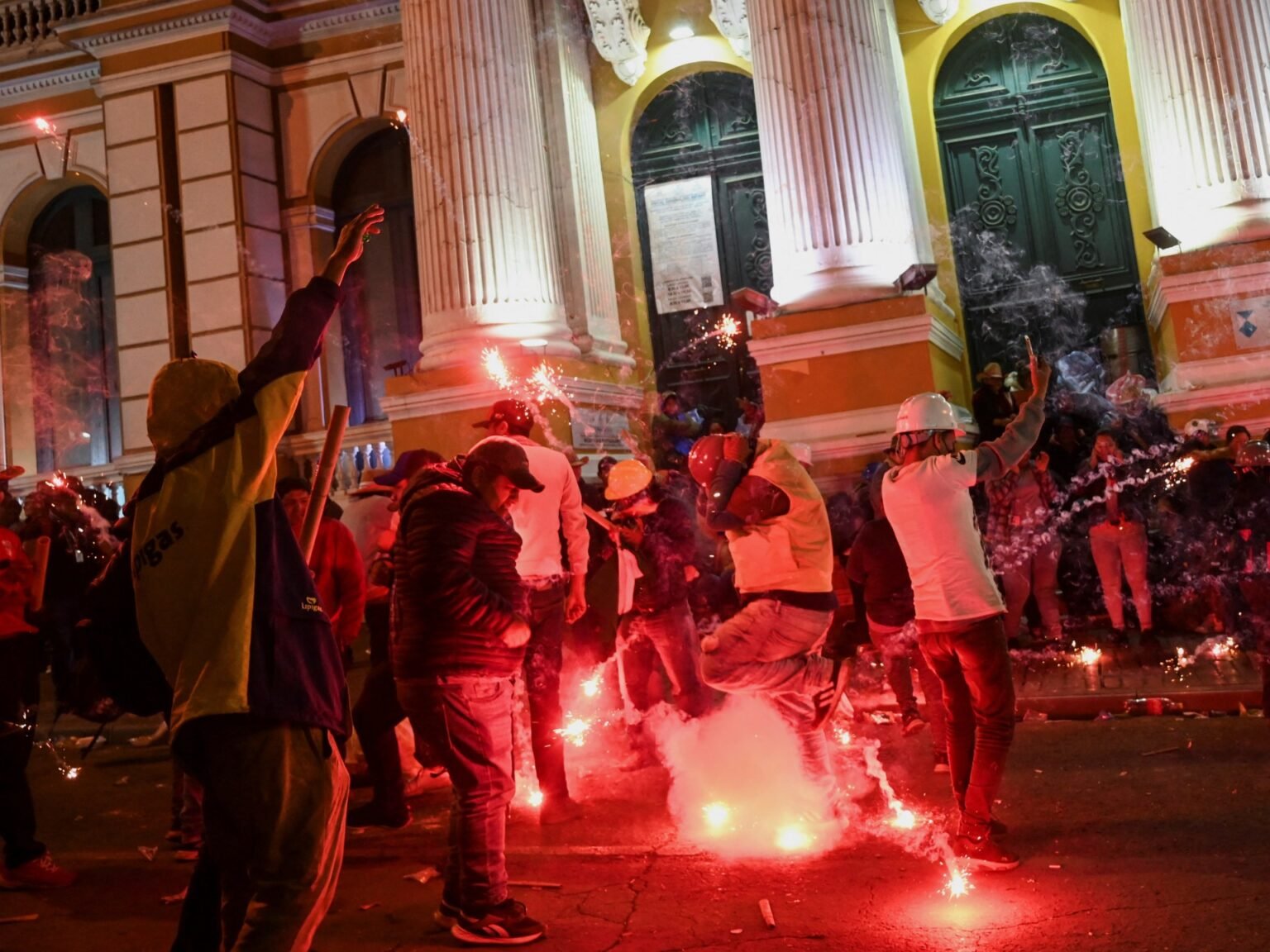Anti-government protests led by former President Evo Morales have triggered clashes with supporters of current President Luis Arce in Bolivia’s capital, La Paz. These clashes have raised fears of further unrest in the country, which is already facing an economic crisis and gearing up for next year’s presidential election. The tension escalated as Morales demanded cabinet changes within 24 hours, threatening to mobilize thousands of protesters against the government, accusing them of corruption and mismanagement.
The protests in Bolivia have resulted in clashes between Morales and Arce supporters, leaving 34 people injured. Both leaders, who were once allies, are now competing to lead Bolivia’s dominant party, Movement Toward Socialism, ahead of the 2025 presidential elections. Their power struggle has paralyzed the government, depleted foreign exchange reserves, and fueled street protests. Arce accused Morales of attempting a military coup earlier this year, while Morales aims to make a political comeback despite being barred from running for another term by the constitution.
The standoff between Morales and Arce has raised concerns of a potential government overthrow, similar to past protests that led to the resignation of former President Gonzalo Sanchez de Lozada in 2003. Political experts believe it is premature to predict a resignation, as the police and military have not shown signs of abandoning Arce to support Morales. Morales demonstrated his national mobilization capabilities in a show of force, but it remains to be seen if he has the strength to enter the legislative building and challenge the government directly.
The economic situation in Bolivia is dire, with a high poverty rate and a decline in natural gas exports leading to revenue loss for Arce’s government. To maintain domestic subsidies, Arce has been depleting international reserves, resulting in a dollar shortage and devaluation of the Bolivian peso. Morales has capitalized on the economic crisis to rally support from Indigenous Bolivians, coca farmers, and workers, using street protests, marches, and road blockades to pressure the government. The “March to Save Bolivia”, a 200km trek led by Morales, aims to highlight the economic struggles faced by the population.
Morales has framed the march as a reflection of Bolivia’s Indigenous culture and a challenge to the Arce government. However, the government and Morales have traded accusations, with Morales claiming that Arce’s government deployed paramilitary groups to incite violence, while Arce accused Morales of instigating unrest in El Alto. The clashes between supporters of the two leaders have intensified, with Morales’ allies accusing the government of repressing the poor and humble people. The political situation in Bolivia remains volatile, with uncertainty surrounding the outcome of the protests and the upcoming presidential election.











